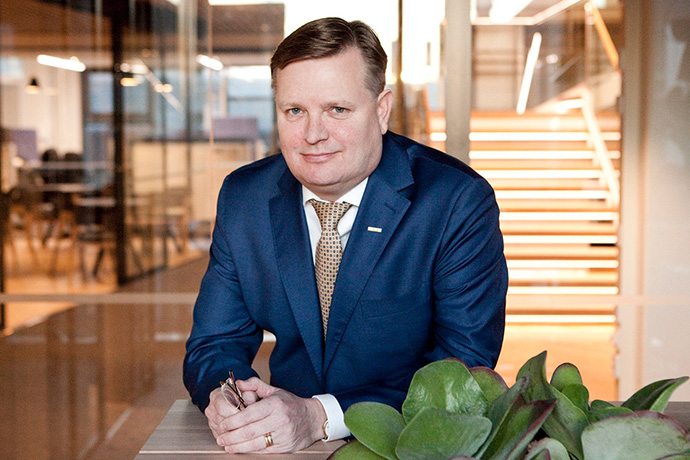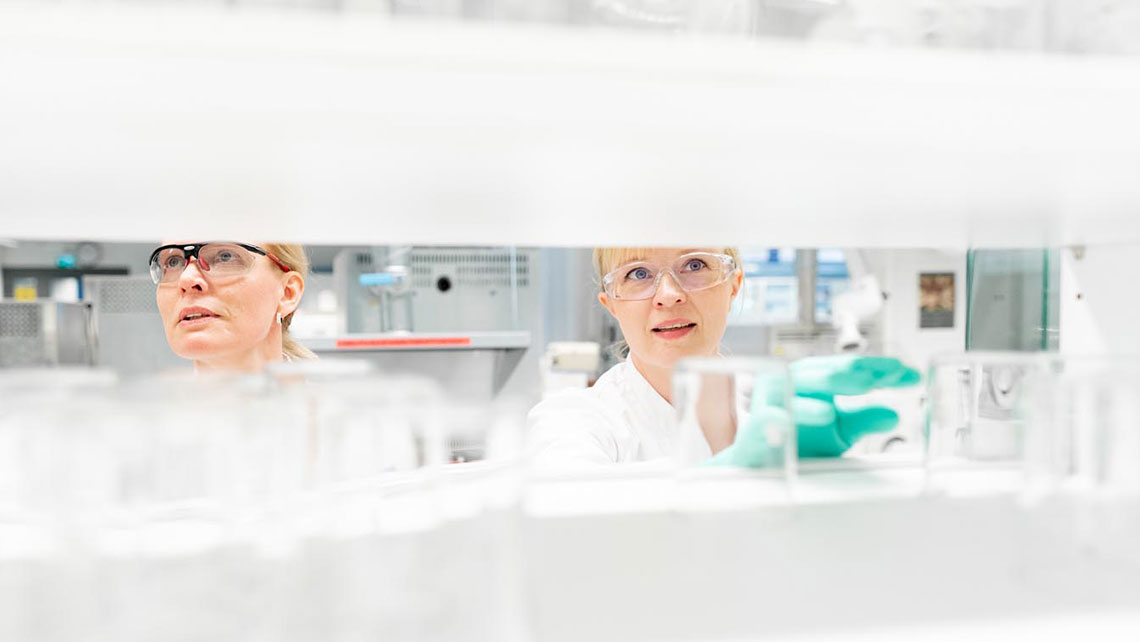Finland would not be able to operate efficiently and sustainably in many major industries without top expertise in chemistry. Kemira, a Finnish company, leads the way in its field, manufacturing products that improve processes in the paper and pulp industry, industrial and municipal water treatment, and the oil and gas industry, among other sectors.
Chemistry and Kemira also play a significant role in environmental remediation. For example, Lake Littoistenjärvi was purified using Kemira’s chemicals. After the treatment, its incredibly bright water was reported widely in the news. In Canada, the company has participated in cleaning tailings ponds from oil sands operations.
“In our company, there has been no need to separately highlight the importance of the circular economy and sustainability, as these themes are integral to the chemical sector, in addition to being a minimum requirement for operations. The chemical industry is strictly regulated, and expertise in product safety is extremely important because of regulation alone,” says Jari Rosendal, President and CEO of Kemira.

Kemira actively pays attention to ensuring that its operations are up to date. The company invests tens of millions of euros annually in the development of sustainable products. “Our products will increasingly be based on renewable, recyclable or bio-based raw materials,” Rosendal explains. The assessment of resource and energy efficiency, recyclability and other environmental impacts is an essential part of Kemira’s product development process, before moving on to the next development phase. The goal is for each new product to be more sustainable than the corresponding existing technology.
In industrial operations, the manufacture of desired end products typically generates various side streams or waste that other operators use as raw materials in their operations.
Around 80% of raw materials used in our coagulants for purifying drinking water come from recycled sources.
“Around 20% of our raw materials are by-products of our partners’ processes. A good example of this is the coagulant used to purify drinking water. Around 80% of our raw materials for coagulants come from recycled sources.”
A larger-scale example of the circular economy can be found in China, where Kemira is opening its second plant to increase the production of AKD wax, which is used in the treatment of paper and paperboard.
“Its raw material is a bio-based fatty acid. Of course, sustainability must also be taken into account when using such products, to ensure that the raw material is not taken from the food chain and that it has been produced sustainably,” says Rosendal.
“We actively monitor all of our thousands of suppliers of raw materials and carefully audit the most critical ones. They are expected to meet strict sustainability criteria before they can sell their products to us. We also have a program for rewarding our most sustainable and reliable suppliers.”
Sustainability also improves profitability
Many studies have shown that sustainable operations are profitable, particularly in the long term. For Kemira, sustainability also means direct financial benefits.
“We were the second company in Finland to enter into a financing agreement where the interest we pay on the loan decreases once we meet certain sustainability criteria. The loan amount is EUR 400 million, meaning that sustainability brings us substantial financial benefits,” Rosendal sums up.
Interview published originally in Finnish in Talouselämä magazine´s Sustainability annex on June 7, 2019.

